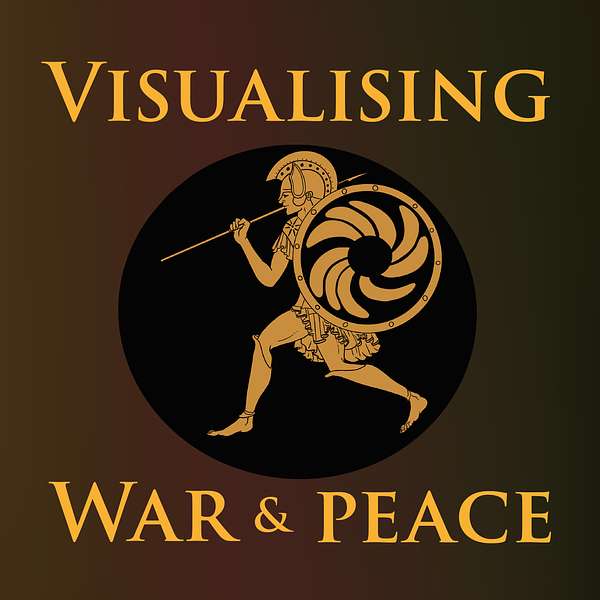
Visualising War and Peace
How do war stories work? And what do they do to us? Join University of St Andrews historian Alice König and colleagues as they explore how war and peace get presented in art, text, film and music. With the help of expert guests, they unpick conflict stories from all sorts of different periods and places. And they ask how the tales we tell and the pictures we paint of peace and war influence us as individuals and shape the societies we live in.
Visualising War and Peace
Why We Fight: causes of conflict with Mike Martin
In this week's episode, Alice and Nicolas interview Dr Mike Martin, author of An Intimate War: an Oral History of the Helmand Conflict, 1978-2012 and Why We Fight. Mike is a former British Army officer who was deployed to Afghanistan multiple times. A fluent Pashto speaker, Mike's role involved researching local culture and history to help inform military operations in the region. He is proud of the work he did, which undoubtedly saved Afghan and British lives; but his research ended up bringing him into conflict with the Army because it exposed the significant gaps between the stories which Western powers were telling about the war and the much more complex realities on the ground.
In the podcast, Mike discusses what can happen when habits of describing and understanding a conflict are at odds with how the conflict is actually playing out. As he explains, a mismatch between narrative and reality not only leads to mistakes and missed opportunities: different players can leverage the stories that others keep telling to finance, expand and drive more conflict. Mike also talks about the role that storytelling plays at a much more basic level, to frame and justify the reasons we go to war in the first place - and we consider what role more inclusive storytelling might play in future in preventing or mitigating conflict.
Among other questions, we asked Mike:
- What difference can research into local culture and history make to military operations?
- How did Western/official narratives of the war in Afghanistan compare with the conflict/conflicts that were actually taking place on the ground?
- In what ways can official/external habits of understanding or describing a conflict end up shaping the course that the conflict ultimately takes?
- What role do war stories play in driving humans to fight, or in justifying their decisions to go to war?
- What social narratives do we need to foster and tell to reduce the drivers of conflict in the 21st century?
We hope you enjoy the episode!
For a version of our podcast with close captions, please use this link. You can find out more about Mike's research and publications on his website, and his books can be purchased from all good booksellers! For a 25% discount on Why We Fight, go to Hurst Publishers and use the code WARFIGHT25.
For more information about individuals and their projects, access to resources and more, please have a look on the University of St Andrews Visualising War website.
Music composed by Jonathan Young
Sound mixing by Zofia Guertin